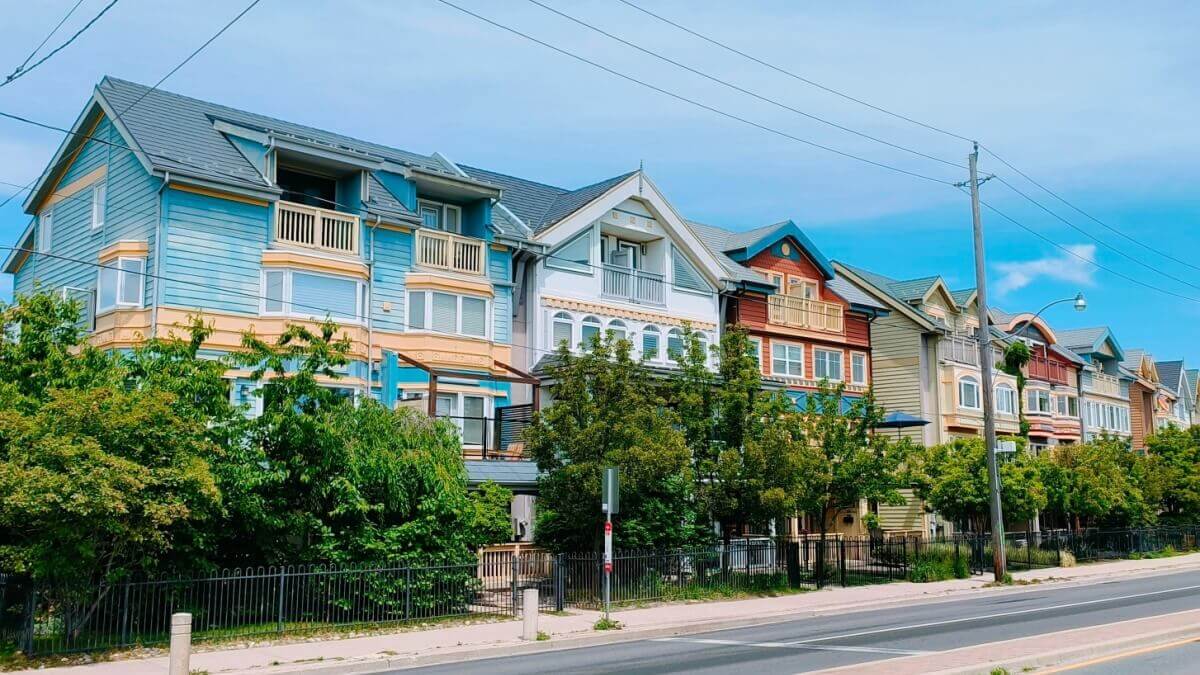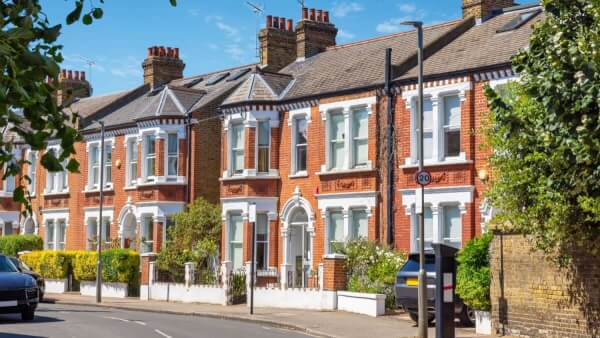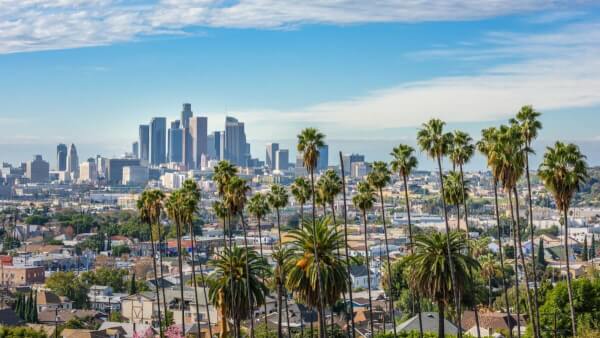Buying property in Indonesia as a foreigner
Read our comprehensive UK guide to buying property in Indonesia as a foreigner, including average prices, fees, taxes and where to start house hunting.

Considering moving to Canada from the UK? Perhaps you’re moving there to be with family, or to work or start a business. You might even fancy retiring there.
Whatever your plans, one of the most crucial things to do ahead of your move is find somewhere to live. But is it possible to buy property in Canada as a foreigner, and how do you go about it?
Read on for everything you need to know, including info on mortgages, fees, taxes and the latest Canadian property prices. We’ll also cover the rules and exemptions on property purchases for foreigners, along with the main pitfalls to avoid.
And if you’re looking for ways to save money on currency exchange when buying property in Canada, check out the money services provider Wise.
You can send large transfers with Wise for low fees* and great exchange rates - making it ideal if you’re sending a secure international transfer.
As of a new law (the Prohibition on the Purchase of Residential Property by Non-Canadians Act) passed in 2023, foreigners are not allowed to buy residential property in Canada.¹
This ban lasts until 1st January 2027, and is designed to boost the local property market and help Canadians get on the property ladder.¹
However, there are some exemptions, which means that buying property as a UK national isn’t completely out of the question.
You may be able to buy property in Canada as a foreigner if you:¹
There is no direct route to obtaining legal residency in Canada through the purchase of property.
This means that if you want to live in the country, you’ll need to follow a different route - such as getting a study, business or work visa, for example.
If you are eligible to buy a home in Canada, you’ll need to know a little about how property purchases are typically carried out.
Here’s a quick overview of the steps involved as a buyer:
The first thing to do is check your eligibility to buy a home in Canada as a foreign national. You’ll need to see if you fall into any of the exemption categories of the new Prohibition on the Purchase of Residential Property by Non-Canadians Act.
You’ll also need:²
You might also need a social insurance number (SIN).
Before starting your property search, you need to get your finances in order. This means setting a budget and getting a mortgage offer in principle from a lender.
Now it’s time to start searching for your dream home. You can use online property portals and/or local estate agents to find properties. We’ll run through some tips later on how and where to start your search.
If you’ve found somewhere you like, arrange a viewing as soon as you can, and start researching the area in the meantime.
The next important step is to submit a competitive offer to the estate agent, or to the buyer directly. You can negotiate, just like in other countries.
While it’s not mandatory, it’s a good idea to find and appoint a property lawyer. They will check over and translate all documents and contracts, as well as carrying out due diligence on the transaction.
A personal recommendation is a good way to find a solicitor, but you can also search the directory on the Canadian Bar Association (CBA) website.
If your offer is accepted and you’re ready to proceed, both parties will sign the purchase agreement. This is a legally binding document which sets out all the terms and conditions of the sale, so you’ll need your solicitor to check it over carefully before you sign it.
At this stage, you’ll need to go back to your mortgage lender to finalise the details of your mortgage.
You might also need to arrange a transfer for a deposit/down payment. Read our guide to the best UK banks for sending money overseas.
While your property lawyer gets on with due diligence tasks (such as carrying out searches and looking into the legal title of the property), you can arrange a building survey.
If the survey flags anything up, you may be able to go back to the seller to negotiate on price or arrange to have issues rectified before the sale completes.
This is the final crucial step, involving the following actions:
Your solicitor will play a crucial part in all of the steps above, helping to guide the transaction through to completion.
| 💡 Read more: How to transfer large amounts of money from the UK? |
|---|
Unless you have the cash upfront, you’re likely to need a mortgage to finance your Canadian property purchase. UK banks aren’t likely to offer funds for overseas purchases, so you might need to try a Canadian mortgage provider.
Many Canadian banks do offer mortgages to foreign citizens. However, you’ll need to meet strict eligibility and affordability requirements, and generally appear to be an attractive customer to lend to. This can be more difficult for non-residents, as banks and lenders will be unable to access a credit history in Canada.³
You might find it useful to work with a specialist broker, who can help you find the right mortgage for you. Simply having someone on your side who really understands the system and has experience in obtaining mortgages for foreign nationals and non-residents can pay dividends. But bear in mind that this usually comes with a fee.
Along with the agreed purchase price, you also need to budget for the property taxes and fees involved in your Canadian property purchase.
Let’s take a look at the approximate costs you can expect:⁴
| Tax/fee name | Rate/fee |
|---|---|
| Survey/home inspection fee | $300 to $1,000 CAD |
| Mortgage fees - Lender appraisal fee - Land survey - Mortgage default insurance - Title insurance | $275 to $500 CAD $1,000 to $2,000 CAD 2.8% to 4% of mortgage value Around $200 to $500 CAD |
| Land transfer tax (LTT) | Varies by province, usually around 0.5% to 2.5% |
| Sales tax | Varies by province, could up to 15% of purchase price |
| Legal fees | $900 to $2,000 CAD |
There’s another important charge to know about if you’re buying in Ontario or certain regions of British Columbia. In both, there’s something called the Non-Resident Speculation Tax (NRST), also known as the Foreign Buyers Tax. It’s a whopping 25% in Ontario and 20% in BC, so you definitely need to factor this into your overall budget.⁵
Canada’s housing market is currently characterised by an unfortunate mix of high prices and unaffordable mortgages.
Prices have increased by a modest 1.6% between 2023 and 2024,⁶ although high house price-to-income ratios mean that Canada remains one of the most unaffordable places in the world to buy property.⁷
However, there are signs of improvement in the country’s rather sluggish property market.
Experts hope that interest rate cuts by the Bank of Canada will make mortgages more affordable and boost demand. There has also been an increase in new property listings in some areas over the last year, helping to tackle the issue of undersupply within the market.⁸
Now we come to the all important question - how much is property in Canada? This will impact what you can afford to buy and on which areas you should focus your search.
According to cost of living database Numbeo, the cost of buying an apartment in Canada is between 1.4% and 14% more expensive per square meter than in the UK - depending whether you buy inside or outside a major city centre.⁹
Although of course, it depends on the type of home and the exact area you’re buying in.
To narrow it down a little further, here’s a guide to what you can expect to pay per square metre in some of Canada’s major cities:¹⁰
| City | Average apartment price per sq.m - city centre | Average apartment price per sq.m - outside city |
|---|---|---|
| Vancouver | $13,847 CAD | $9,867 CAD |
| Toronto | $13,230 CAD | $10,674 CAD |
| Quebec City | $11,874 CAD | $4,092 CAD |
| Victoria | $10,987 CAD | $9,643 CAD |
| Montreal | $9,607 CAD | $5,777 CAD |
| Ottawa | $7,068 CAD | $6,460 CAD |
| Calgary | $4,620 CAD | $4,254 CAD |
| Edmonton | $4,301 CAD | $3,344 CAD |
Another thing to note when figuring out the price for property in Canada is that international transfers could get expensive, especially if the bank or provider adds a margin to the exchange rate to convert your pounds.
Consider checking out Wise to securely handle your large transfers with mid-market exchange rates and low, transparent fees*.
According to Canadian real estate company Royal LePage, some of the cheapest cities for property in Canada in 2024 are:¹¹
The two main routes to find property to buy in Canada are local real estate agencies and online property websites.
You don’t have to, but it could be a good idea to use an agent when looking for property in Canada, especially if you’re moving to Canada from the UK and are unfamiliar with the local property market.
In Canada, estate agents have to be licensed by a provincial regulator and be a member of the Canadian Real Estate Association (CREA). So, make sure you check this before using one - and find out what fees are charged and what exactly you get for your money.
You can also start your search online, using one of the these popular Canadian real estate websites:
One of the main things to watch out for when buying property in Canada, or in any foreign country, are scams.
To avoid scams and other pitfalls, make sure to get local advice and recommendations for a broker. You should also check for membership of a professional body when working with any property experts, brokers or agents.
Other important things to remember include:
Your dream home in Canada will be the one that closest fits your search criteria. The most important factors will be location, the type of home and of course, how much you can afford to spend.
If you’re not already living there, it’s worth making a trip to the specific town or city in Canada you’re interested in. You’ll want to check out the local area and view properties, making sure to pay attention to local transport links and amenities.
It’s a good idea to do as much research as possible before committing to purchase a property.
A key step is to assess the condition of the property with a building survey or inspection. This will flag up any major issues and give you a better idea of what you’re buying.
Before you can get the keys to your new home, you’ll have a few key tasks to run through.
These include taking out insurance, setting up your utilities and carrying out any energy efficiency renovations.
It’s strongly recommended to take out a buildings insurance policy starting from your completion date. In fact, you might find it's a mandatory condition of your mortgage offer.
If you know when your completion date will be, it makes sense to get some essentials set up in advance of moving in.
A prime example is utilities, such as heating, power and water. Get these sorted as early as you can, and the moving process should be a little smoother.
If you’ve bought an older Canadian property, you might want to make some energy efficiency improvements to it. For example, rewiring the electrics, installing insulation or upgrading the heating system.
And there you have it - our complete guide to buying property in Canada for foreigners.
We’ve covered all the important stuff, including property prices, fees and taxes, mortgages and how to start your search.
After reading this, you should have a better idea of how the buying process works in Canada, and be ready to start house hunting.
And, if you want to save money while buying your new property in Canada, make sure to use the Wise account to send your international transfer. It’s not a bank account and offers customers an alternative option to a conventional bank account, but has similar features.
Here are the main benefits for using Wise: |
|---|
|
Sources used:
Sources last checked on date: 05-Dec-2024
*Please see terms of use and product availability for your region or visit Wise fees and pricing for the most up to date pricing and fee information.
This publication is provided for general information purposes and does not constitute legal, tax or other professional advice from Wise Payments Limited or its subsidiaries and its affiliates, and it is not intended as a substitute for obtaining advice from a financial advisor or any other professional.
We make no representations, warranties or guarantees, whether expressed or implied, that the content in the publication is accurate, complete or up to date.

Read our comprehensive UK guide to buying property in Indonesia as a foreigner, including average prices, fees, taxes and where to start house hunting.

Read our comprehensive guide for non-residents selling UK property, including fees, taxes and timescales.

Read our comprehensive guide to selling property in the US, including fees, taxes, timescales and a step-by-step guide to the process.

Read our comprehensive guide to selling property in Switzerland, including fees, taxes, timescales and a step-by-step guide to the process.

Read our comprehensive guide to selling property in Portugal, including fees, taxes, timescales and a step-by-step guide to the process.

Read our comprehensive guide to selling property in Malta, including fees, taxes, timescales and a step-by-step guide to the process.